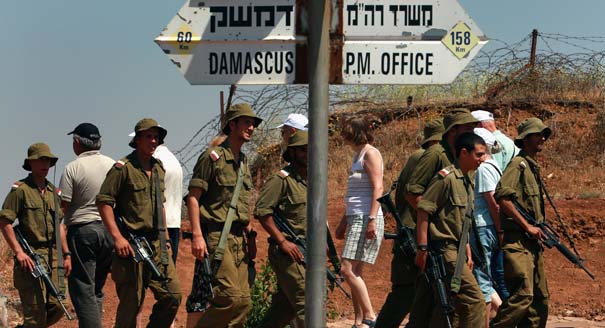Professor Eyal Zisser of Tel Aviv University is one of Israel’s best-known academic experts on Syria and Lebanon and the former director of the Moshe Dayan Center for Middle Eastern and African Studies. He is the author of numerous articles and books on Syria, including Asad’s Legacy: Syria in Transition (NYU Press, 2001) and Commanding Syria: Bashar al-Asad and the First Years in Power (I. B. Tauris, 2006).
Professor Zisser has kindly agreed to answer some questions on how he perceives the situation in Syria today and his view of Israeli government policy toward the Syrian conflict.
How would you describe the Syrian regime’s position today?
Clearly, the regime managed to survive the last long three years of the Syrian civil war. It is bleeding, but at the same time the rebels have their own problems and limitations, and they cannot decide the battle.
After the battle in Qusayr in June 2013, there was a clear shift and the regime was able to regain control over some territories with the help of Lebanon’s Hezbollah. After the Russian-American agreement in September 2013 on eliminating Syria’s chemical weapons, the regime is in a much better position than before. But questions remain: Who will get tired and exhausted first? Who will collapse first—the regime or the rebels? I have no clear answers.
Could you describe the evolution of Israeli policy on Syria since 2011?
At first, Israel wanted Syrian President Bashar al-Assad to stay in power, thinking it was “the devil we know” and fearing the spread of chaos along the border. Then Israeli leaders came to the conclusion that Assad is finished. But then they became aware of the presence of al-Qaeda elements in Syria, like the rebel Nusra Front.
So now the real position—not the official one—is that we wish both sides good luck and that it is in the interest of Israel that they continue fighting. Essentially, we want Assad to stay in power. We want him to be strong enough to keep the border quiet but weak enough so he will not present any real threat to Israel.
Of course there are also those in Israel who think that in the long run, it’s better to get rid of Assad. They think that what matters is the Iranian-Hezbollah issue and that the collapse of Assad would deal a severe blow to the axis of evil.
What is the chance of Israel being dragged into war in Lebanon or with Syria?
Very low. Only if Israel is attacked by Assad—but why should he do such a stupid thing?
However, Israel could find itself engaged in some local conflicts with Islamic extremists along the border or in a limited conflict with Assad if he decides to retaliate the next time Israel attacks targets in Syria. But clearly, everyone in Israel understands that Israel must not get involved in the war in Syria.
How will the Iran-United States nuclear deal affect Israel and the Syrian crisis?
This agreement is a clear sign that the United States, and the West in general, is not looking for any engagement in local conflicts in the Middle East. The rebels were left alone, and this might encourage the regime.
As for Israel, it should get used to the idea that Iran will be allowed to become a nuclear state, or at least to have the capability to turn nuclear in a short time. The Israeli dilemma would be whether to take action by itself or prepare itself for the new environment.
But nothing dramatic in the short run, simply more of what we saw over the past several months.
In March 2013, Major General Yair Golan raised the idea of a buffer zone in the Golan Heights. Could this happen?
A buffer zone means an Israeli presence inside Syria, which means opening a front, like in southern Lebanon. Like in the Sinai, the best thing to do is defend the border without getting into Syria.






